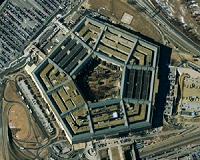 |
Russia Profile Moscow (RIA Novosti) Apr 11, 2011 Two years on, the "reset" in U.S.-Russian ties has changed the tone of relations, but the "hollow" veneer of its overall success does not mask enduring mistrust between the countries and their different national interests, say analysts. U.S. Vice President Joe Biden is due in Russia on March 10 to "energize" the reset, but analysts question how warmer ties can develop further, while noting that the Obama administration - keen to flaunt a foreign policy triumph domestically - has shouldered the weight of the reconciliation. "The determination of the United States not to rock the boat on a number of issues where it could have done has effectively led to the appearance of the reset working, whereas in fact there is very little of a substantive nature," said James Nixey, head of the Russia and Eurasia Program at Chatham House, a London-based think tank. Advocates of the reset point to the signing and ratification of the strategic arms reduction treaty - voted through the U.S. Senate by a close margin - as a milestone in closer ties, but analysts say it could well have been signed without the reset. "I'm not convinced you can point to START as a direct result of the reset," said Nixey. "The treaty was always in the interests of both sides." Alexander Konovalov, president of the Moscow-based Institute of Strategic Analysis, said that the reset has struggled to overcome the legacy of Cold War enmity. "There could definitely be more going on overall," said Konovalov. "Relations are still built on the ruins of the system of confrontation. In the nuclear field we still rely on nuclear containment, although it's pretty clear that there is no need to contain each other." Since Secretary of State Hillary Clinton and counterpart Sergei Lavrov "hit the reset button" in Geneva on March 6, 2009, the Kremlin has tentatively inched closer to the U.S. position on Iran by backing moderate UN sanctions to curb Iran's perceived nuclear ambitions. But Moscow questions the efficacy of sanctions and is also reluctant to anger Tehran as it risks losing its traditional economic interests in the oil rich pariah state. Moscow gave the green light to the "Northern supply route," a key transit corridor for non-lethal U.S. cargo needed to service the faltering military campaign in Afghanistan. But far from a Russian concession related to the reset, the move was entirely "in line with Russia's national interest." Russia does not to want to see instability in Afghanistan worsen, potentially resonating throughout post-Soviet Central Asia, along Russia's underbelly, Nixey said. For its part Washington has appeased Moscow by taking Georgia and Ukraine off the entry roadmap to NATO, by shelving missile defense plans in Europe and by reneging on the Bush administration's democracy promotion in the post-Soviet space, Russia's so-called backyard. American rhetoric aimed at Russia has also softened. Nixey said he was "extremely doubtful" that there would be anything more than "token" criticism of Russia's upcoming parliamentary and presidential elections in December and early next year, unthinkable during the lows of relations under Bush and Putin. "The desperation to make the reset work has almost made it work," said Nixey. "But it doesn't quite cover up for the hollowness of it all and the fact that there are still vast differences on various things." The relatively calm way that Washington dealt with uncovering the largest post-Cold War spy ring exemplified the U.S. political will to make the reset work. But it will still have raised eyebrows behind the White House's closed doors. "There's a public face and a private face to these things. Privately, this was unsurprising and merely confirmed in the minds of American policymakers that Russia is awkward and not really to be trusted," said Nixey.
The next step Konovalov agreed, despite suggesting that areas of joint cooperation could be waiting around the corner. "It's difficult to imagine what more can be done in the reset. The lack of trust on both sides remains strong. But life keeps on throwing new topics at us, like the situation in North Africa. We have to find ways to act together on these matters," he said. The views expressed in this article are the author's and may not necessarily represent those of RIA Novosti.
Share This Article With Planet Earth
Related Links - Learn about the Superpowers of the 21st Century at SpaceWar.com Learn about nuclear weapons doctrine and defense at SpaceWar.com
 In shutdown, US troops will stay on duty: Pentagon
In shutdown, US troops will stay on duty: PentagonWashington (AFP) April 7, 2011 If the US government shuts down over a budget impasse, American troops and some private contractors will stay on the job but they will not get paid, the Pentagon said Thursday. From Afghanistan to Libya, US military operations around the world would continue without interruption in the event of a shutdown, Deputy Defense Secretary William Lynn said in a message to the Pentagon's vast workfor ... read more |
|
| The content herein, unless otherwise known to be public domain, are Copyright 1995-2010 - SpaceDaily. AFP and UPI Wire Stories are copyright Agence France-Presse and United Press International. ESA Portal Reports are copyright European Space Agency. All NASA sourced material is public domain. Additional copyrights may apply in whole or part to other bona fide parties. Advertising does not imply endorsement,agreement or approval of any opinions, statements or information provided by SpaceDaily on any Web page published or hosted by SpaceDaily. Privacy Statement |